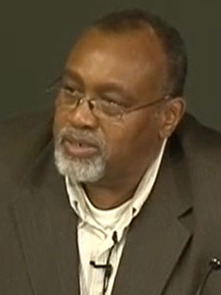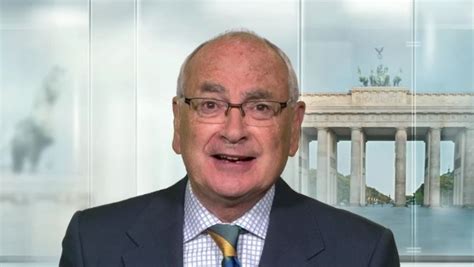Top 101 Orwell Quotes & Sayings - Page 2
Explore popular Orwell quotes.
Last updated on December 4, 2024.
Everything has become very corporate and very careful. Before we had a real democracy going and there were a lot of freedoms and now there's this terrorism thing that everybody's focused on, which is really a boondoggle in my opinion. It's just an excuse to clamp down on people's free speech. And corporations intimidate people and everybody's gotten intimidated and that's really what it is, and they just keep going along. It's almost like - a little bit like that Charlie Chaplin movie, Modern Times, or 1984, Orwell
If you rely on a more conventional understanding of the term 'left-wing' as being associated with gradations of socialism in the emancipation of the working class, the Leap Manifesto looks something more along the lines of what the great British socialist and essayist George Orwell was on about in 'The Road to Wigan Pier' in 1937.
Many journalists now are no more than channelers and echoers of what Orwell called the official truth. They simply cipher and transmit lies. It really grieves me that so many of my fellow journalists can be so manipulated that they become really what the French describe as functionaires, functionaries, not journalists.
Popular culture bombards us with examples of animals being humanized for all sorts of purposes, ranging from education to entertainment to satire to propaganda. Walt Disney, for example, made us forget that Mickey is a mouse, and Donald a duck. George Orwell laid a cover of human societal ills over a population of livestock.
Orwell says straight, look, in England what comes out in a free country is not very different from this totalitarian monster that I'm describing in the book. It's more or less the same. How come in a free country? He has two sentences, which are pretty accurate. One, he says, the press is owned by wealthy men who have every reason not to want certain ideas to be expressed. And second - and I think this is much more important - a good education instills in you the intuitive understanding that there are certain things it just wouldn't do to say.
It wasn't until my teenage years that a book really left a mark, and that was George Orwell's 'Nineteen Eighty-Four.' It was on the syllabus at school when I was about 16, and I went on to read more of his books. It was the height of the Cold War, so a lot of the messages really resonated at the time.
George Orwell was right. There's no greater genius as far as I'm concerned in terms of understanding human nature. I think that a lot of people just believe anything you tell them, and no matter what it is, they just go along with the program. They're perfectly happy to take their pill every day and do what they're told, and work and buy things, and work and buy things, and stay out of any complex emotional situations. And whatever the authorities tell them to do, they do, and whatever the authorities say is the truth, they believe is the truth.
This bill would renounce the safe, proper, and acceptable role for Government as a referee of disputes between the governed. It would interpose the Government as a biased protagonist, armed with the awesome authority of the Federal Government, in addition to rulemaking and umpire powers. The broad grants of power to the Attorney General to initiate and intervene in civil actions would go far toward transforming him into George Orwell's 'Big Brother' of '1984,' in the year 1964.
The fact that we don't' talk about it, that we don't have a politics in which this question of war and peace can even get onto the table, so that we can open up our Orwell, our 1984, or Animal Farm, or whatever, and read the political text that's being spotted to us on the television right off of the page; the fact that we don't have a politics robust enough to actually debate whether or not we want to be a country permanently at war. That's what keeps me from sleeping at night.
I had amazing intellectual privilege as a kid. My mom taught me to read when I was two or three. When I was five, I read and wrote well enough to do my nine-year older brother's homework in exchange for chocolate or cigarettes. By the time I was 10, I was reading Orwell, Tolstoy's 'War and Peace,' and the Koran. I was reading comic books, too.
I do not think the British want to become America's "Airstrip One," as the British Isles are called in George Orwell's "1984." The EU's internal market was a massive success even before the UK joined it, and it joined because there was no real alternative. So while British tabloids are expecting to be punished by Germany, Brexit is punishment in itself.
If any issue should unite liberals and conservatives, anyone who cares about the integrity of human achievement or respect for human accomplishment, may we not all pledge to avoid the silly censoring that can lead to a codification of Orwell's Newspeak? Consider John Milton's reasons for why good arguments are often lost: 'For want of words, no doubt, or lack of breath!'
What concerns me most is the horrible degradation our notions of truth, civility, and decency have undergone. Also the way that language has been malformed - we have been overcome with banality and the cynical misuse of language. When a candidate runs a campaign on a series of dog-whistles to bigots, then turns around and talks about "healing the wounds of division," that is right out of Orwell.
Orwell was dealing with communism and his disillusionment with communism in Russia and what he saw the communists do in Spain. His novel was a response to those political situations. Whereas I was interested in more things than the political atmosphere. I was considering the whole social atmosphere: the impact of TV and radio and the lack of education. I could see the coming event of schoolteachers not teaching reading anymore. The less they taught, the more you wouldn't need books.
If Big Brother (of Orwell's 1984) comes to America, he will not be a fearsome, foreboding figure with a heart-chilling, omnipresent glare as in 1984. He will come with a smile on his face, a quip on his lips, a wave to the crowd, and a press that (a) dutifully reports the suppressive measures he is taking to save the nation from internal chaos and foreign threat; and (b) gingerly questions whether he will be able to succeed.
They take the circuits out of people’s brains that make it possible for them to think for themselves. Their world is like the one that George Orwell depicted in his novel. I’m sure you realize that there are plenty of people who are looking for exactly that kind of brain death. It makes life a lot easier. You don’t have to think about difficult things, just shut up and do what your superiors tell you to do.
The sad fact is that I love Dickens and Donne and Keats and Eliot and Forster and Conrad and Fitzgerald and Kafka and Wilde and Orwell and Waugh and Marvell and Greene and Sterne and Shakespeare and Webster and Swift and Yeats and Joyce and Hardy, really, really love them. It’s just that they don’t love me back.
Writers like Aldous Huxley and George Orwell have imagined the sort of scientific utopia which is coming to pass, but already their nightmare fancies are hopelessly out of date. A vast, air-conditioned, neon-lighted, glass-and-chromium broiler-house begins to take shape, in which geneticists select the best stocks to fertilise, and watch over the developing embryo to ensure that all possibilities of error and distortion are eliminated.
George Orwell's '1984' frequently tops surveys of our greatest books: it's not a celebration of poetic language. It's decidedly anti-literary, a masterpiece of personal and political narrative sequence. And its subject matter is crucial, because what '1984' shows is that language can be a dirty trick.
Think about George Orwell's three-minute hate from the novel '1984' and how that left everyone sort of exhausted and able to live their boring humdrum lives. If our lives are going to continue being unfulfilled and boring, perhaps we do need some sort of short-term violent chaos incorporated into them, to make them more palatable.
In 'Nineteen Eighty-Four,' protagonist Winston Smith works at a propaganda department for the state called the 'Ministry of Truth,' where inconvenient news can be discarded down a 'memory hole.' Orwell was fixated on the idea that under certain governments, the past can be altered or documents rewritten.
(Barry) Bonds' records must remain part of baseball's history. His hits happened. Erase them and there will be discrepancies in baseball's bookkeeping about the records of the pitchers who gave them up. George Orwell said that in totalitarian societies, yesterday's weather could be changed by decree. Baseball, indeed America, is not like that. Besides, the people who care about the record book - serious fans - will know how to read it. That may be Bonds' biggest worry.
Fifty years from now Britain will still be the country of long shadows on county grounds, warm beer, invincible green suburbs, dog lovers and pools fillers and - as George Orwell said - “old maids bicycling to Holy Communion through the morning mist” and if we get our way - Shakespeare still read even in school.


































